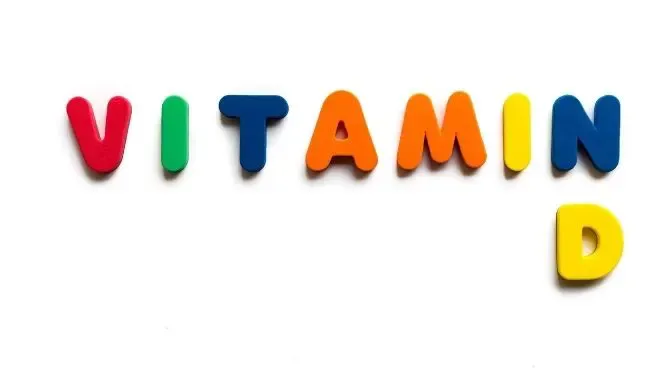Can you give vitamin D to your baby?
When should I give my baby vitamin D? Essential for babies, vitamin D supports growth and ensures the solidification of bones. Supplementation is sometimes necessary for children.
Vitamin D for babies

What is Vitamin D?
Vitamin D is not a vitamin strictly speaking but a pro-hormone. When absorbed, part of it is transformed into the hormone calcitriol under the action of the liver and kidneys.Calcitriol is, therefore, one of the active forms of vitamin D. Within the body, it binds to specific receptors (VDRs), present in almost all cells.
Calcitriol plays a significant role in bone growth. Indeed, it improves the absorption of calcium and phosphorus in the intestine.
These minerals ensure the strength of bones and teeth and promote the mineralization of the skeleton. Vitamin D is therefore essential for babies and children.
It is either produced by the body, under the action of UVB rays or provided through food. Unfortunately, babies' skin is fragile, exposure to the sun is limited before the age of 2 years.
The role of vitamin D in children

Vitamin D supports bone growth
Its primary role is to support bone growth and building, and thus, it ensures the normal development of the skeleton.Its presence is significant during postnatal growth, which is very rapid.
Through its active form, vitamin D stimulates phosphocalcic metabolism, maintains a good level of calcium in the blood and promotes its absorption by the intestines.
It also increases the assimilation of phosphorus, essential for the formation of bones and teeth.
This study shows its role in the intestinal absorption of calcium and the skeleton's health.
Vitamin D ensures the strength and mineralization of bones and teeth
In addition to supporting the child's growth, it is involved in the solidity and mineralization of bones and teeth.Thus, it helps calcium and phosphorus bind to bones and cartilage, and it does the same in the hard tissues of the teeth. It is essential for dentition formation, consolidation, and mineral density.
This study shows how vitamin D influences baby teeth and the development of cavities from an early age.
Vitamin D prevents diseases of growth and ossification.
Vitamin D deficiency can cause rickets in infants and young children. This disease notably causes growth retardation and bone deformities.The baby may also delay the acquisition of walking or in the development of teeth.
Vitamin D supplementation may help limit the risk of growth and ossification diseases.
This study also shows the role of vitamin D and the importance of preventing deficiency and rickets during pregnancy and lactation.
It strengthens the immune system.
Finally, vitamin D has beneficial effects on the immune system, and the latter is still very fragile in the baby.Thus, it stimulates the defense capacity of white blood cells against attacks and pathogens (bacteria, viruses, etc.).
It also guarantees an adapted, healthy and balanced immune response.
When should babies be supplemented?
Infants and young children have higher vitamin requirements than adults. Thus, they are 800 to 1000 IU/day for newborns and babies up to 12 months.However, breast milk contains little vitamin D. Infant milk, on the other hand, is generally insufficient to cover the necessary intake. And this even when they are enriched.
To avoid deficiencies and prevent rickets, vitamin D can be supplemented for children aged 0 to 18 months, whether they are breastfed or artificially breastfed.
Vitamin D dosage and precautions for use
Vitamin D is taken orally in the form of drops.ANSES (National Agency for Food, Environmental and Occupational Health and Safety) recommends taking medication rather than vitamin D-enriched food supplements.
The frequency and dosage depend on each child. Only a doctor or pediatrician can advise you on the dose your baby gives.
Also, pay attention to overdose, which can disrupt kidney function and lead to hypercalcemia (excess calcium in the blood) in children.
The frequency and dosage depend on each child. Only a doctor or pediatrician can advise you on the dose your baby gives.
Also, pay attention to overdose, which can disrupt kidney function and lead to hypercalcemia (excess calcium in the blood) in children.
Post a Comment